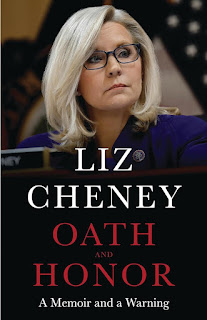Oath and Honor
- Get link
- X
- Other Apps
After the November 2020 elections, President Trump made several high-profile firings and personnel changes, particularly in positions related to national security and election security. Notable individuals who were fired include:
Mark Esper, Secretary of Defense - Fired on November 9, 2020. Esper's dismissal raised concerns due to the crucial role of the Pentagon during the transition period between administrations, which is a time of potential vulnerability for the United States .
Chris Krebs, Director of the Cybersecurity and Infrastructure Security Agency at the Department of Homeland Security - Krebs was fired after he countered President Trump’s claims about election fraud, asserting that the 2020 election was secure and that there was no evidence of voting systems being compromised. His firing was announced via a tweet from President Trump .
These firings were part of a broader pattern of replacing key officials with loyalists, which heightened concerns about the stability and security implications during the transition period to the Biden administration.
Following the November 2020 elections, a number of Past occurred in the Trump administration, particularly in response to the events surrounding the January 6th Capitol attack and the administration's handling of the election results. Key cabinet members and officials who resigned include:
Elaine Chao, Secretary of Transportation - Resigned citing the events at the Capitol as deeply troubling in a way that she could not set aside. Her resignation was particularly significant as she is the wife of Senate Republican Leader Mitch McConnell.
Betsy DeVos, Secretary of Education - Resigned the day after the Capitol attack. In her resignation letter to President Trump, she called the attack "unconscionable" and criticized Trump's rhetoric, stating it had a considerable impact on the situation and marked an inflection point for her decision to resign.
These resignations underscored the growing concern and disapproval within Trump's own administration regarding his conduct and the handling of his election loss. Liz Cheney was removed from her position as the Chair of the House Republican Conference due to her vocal opposition to President Trump's claims about the 2020 election. The decision was made through a vote by members of the House Republican Conference. This vote came as a result of growing dissatisfaction within the party regarding her stance against Trump's assertions of election fraud, which many of her party members supported or chose not to contest openly.
Several Republican senators supported President Trump's claims of fraud in the 2020 election and participated in efforts to contest the electoral results. Notable among them were:
- Ted Cruz (Texas) - Led a group of senators and senators-elect in objecting to electors from "disputed states."
- Tommy Tuberville (Alabama) - Joined the objection efforts as a newly elected senator.
- Josh Hawley (Missouri) - Was one of the first senators to announce he would object to the certification of the electoral votes.
- John Kennedy (Louisiana), Ron Johnson (Wisconsin), and James Lankford (Oklahoma) - Also supported the objections to the electoral results based on claims of irregularities.
These senators, along with others, were involved in efforts that were seen as undermining the integrity of the election process, aligning with President Trump's narrative of a rigged election. Their actions were part of a broader movement within parts of the Republican Party to challenge the electoral outcomes and support Trump's claims, despite the lack of evidence provided in courtrooms where these claims were consistently dismissed.
Republican members of Congress supported the impeachment of Donald Trump following the events of January 6, 2021. Notably, these representatives included:
- John Katko (New York) - The first Republican member of Congress to announce his support for impeachment, citing the attack on the U.S. Capitol.
- Liz Cheney (Wyoming) - As a high-profile member of the Republican leadership, she vocally supported impeachment and faced significant political backlash as a result.
- David Valadao (California) - Despite concerns about the timing and process, he voted to impeach, citing his conscience over political expedience.
- Dan Newhouse (Washington) - Supported impeachment and was one of the few to return to serve in the subsequent Congress.
- Adam Kinzinger (Illinois) - Known for his critical stance against Trump, he supported the impeachment.
- Fred Upton (Michigan) - Another Republican who supported the impeachment.
These members faced considerable political and personal repercussions for their stance, reflecting the deep divisions within the party and the significant influence of Trump over the Republican base. Their decisions were framed as acts of constitutional duty, despite the political risks involved.
Six Republican members of Congress supported the impeachment of Donald Trump following the events of January 6, 2021. Notably, these representatives included:
- John Katko (New York) - The first Republican member of Congress to announce his support for impeachment, citing the attack on the U.S. Capitol.
- Liz Cheney (Wyoming) - As a high-profile member of the Republican leadership, she vocally supported impeachment and faced significant political backlash as a result.
- David Valadao (California) - Despite concerns about the timing and process, he voted to impeach, citing his conscience over political expedience.
- Dan Newhouse (Washington) - Supported impeachment and was one of the few to return to serve in the subsequent Congress.
- Adam Kinzinger (Illinois) - Known for his critical stance against Trump, he supported the impeachment.
- Fred Upton (Michigan) - Another Republican who supported the impeachment.
These members faced considerable political and personal repercussions for their stance, reflecting the deep divisions within the party and the significant influence of Trump over the Republican base. Their decisions were framed as acts of constitutional duty, despite the political risks involved.
Kevin McCarthy
Kevin McCarthy played a complex and often contradictory role in dealing with President Trump's denial of the 2020 election results. Initially, McCarthy appeared to support Trump's claims. He publicly claimed the election was stolen and supported legal challenges to the election results, aligning closely with Trump's narrative.
Support for Trump's Claims:
- McCarthy made appearances on Fox News and other platforms echoing Trump's claims of a stolen election. He was involved in efforts to object to the electoral votes and signed amicus briefs supporting Trump's position .
Shift in Position Post-January 6:
- After the January 6 attack on the Capitol, McCarthy's stance appeared to shift temporarily. He acknowledged Trump's role in inciting the violence and suggested Trump should resign. He expressed a clear disillusionment with Trump's actions during private conversations, stating, "I’ve had it with this guy. What he did is unacceptable. Nobody can defend that, and nobody should defend it" .
- However, McCarthy's stance changed again later. By April 2021, he was back to defending Trump and minimizing the former president's role in the events of January 6. This shift seemed influenced by political pressures and the need to maintain unity within the Republican Party, which remained largely supportive of Trump .
Political Maneuvering:
- McCarthy's actions post-January 6 included withdrawing his nominees from the Select Committee investigating the attack after Speaker Pelosi rejected two of his picks, suggesting an effort to discredit the committee's work as partisan. This move was criticized by Trump and others as a strategic error that left Republicans without representation on the committee .
Several Trump supporters were convicted following the events of January 6, particularly members of extremist groups who participated in the Capitol riot. Notably, key members from groups like the Proud Boys and Oath Keepers were convicted of serious charges including seditious conspiracy, highlighting the severity of their actions in attempting to overturn the election results.
Convicted Individuals:
- Stewart Rhodes (Oath Keepers leader) and Enrique Tarrio (Proud Boys leader) were both convicted of seditious conspiracy for their roles in the events of January 6 .
- Other members of these groups were also convicted, although the document does not specify all their names. Their actions included planning and leading the assault on the Capitol in an attempt to stop the certification of the election results .
- Get link
- X
- Other Apps


Comments
Post a Comment